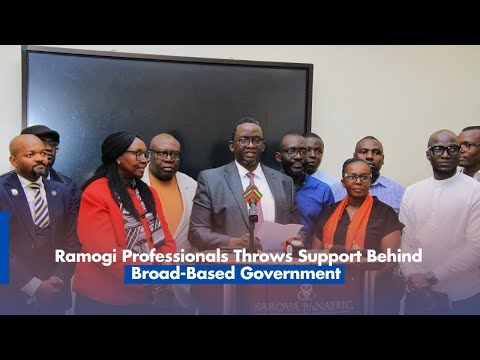This is the 39th week of 2023, signalling that the end of the year is nigh. Something commendable happened this week. Immediately President William Ruto landed from the 78th session of the United Nations General Assembly, he went straight to launch the Community Health Promoters programme that shall enlist 100,000 volunteers to help monitor the health of the populace, each handling 100 households.
A really great initiative complete with a monthly stipend and necessary equipment to help perform basic health monitoring such as blood pressure, and so on.
CHPs, commonly known as CHVs, have been doing this work on a voluntary basis since time immemorial. They are some of the true good Samaritans on the ground, since they do more than just health as they are also involved in dealing with and resolving social issues affecting communities.
Assuming a modern-day household in Kenya has four to five members, this means that one CHP will be able to monitor roughly 400 to 500 people. Such reach and data shall be the most comprehensive in measuring Universal Health Coverage, if this key pillar of the KK administration is to succeed.
CHPs are generally social workers and the work of an MP is nothing more than that of a glorified social worker. This is what I have come to learn in my two terms as a legislator in both the Senate and the National Assembly. However, even more daunting is the role of a community kingpin, the de facto leader of a given tribe, group of tribes and/or region.
How, then, does one rise to become a kingpin, yet no election is held to determine this? This is very important since rarely does anyone rise to national leadership without being seen to be the leader of the people of where he comes from.
To begin with, one must be elected in that region, usually as an MP or senator. He must stand tall amongst his peers, with good oratory and mobilisation skills. The person must also be fairly well financially endowed, and able to rally a number of MPs to support his cause. He must be able to bankroll many activities, including financing the MPs and their meetings, be it consultations, pressers and monies for harambees.
The wannabe must address key concerns of his community, such as their main economic activity eg, miraa, coffee, fish or any other endeavour. He must also defend the sons and daughters of the community if they fall afoul of the law. This must cut across the political divide, making him the go-to person on such and other matters.
Due to the fact that there are many pretenders to the throne, he must outsmart his other competitors to win the support of the majority of the community members. He must be strategic in being coroneted as an ‘elder’ of the community and spokesperson by some well-known or respected wazees from the community, with some measure of believability.
It doesn’t matter if these wazees are ‘hired’; the ends justify the means! The emerging kingpin must be able to host delegations and delegations of people from his backyard on a regular basis to ‘consult’ them on the future of the community.
Such an individual must more often than not be able to establish and run a political party, with a number of MPs, MCAs, senators, woman reps and governors elected on this ticket. The party is basically a tribal one, but with elements of nationalism to help cover the real base of the leader.
The leader must be bold enough to run for the presidency, even if he doesn’t succeed at first. However, he must remain relevant for whatever period that he is out in the ‘cold’, always setting the pace and agenda for his people and the nation at large.
Those elected on his ticket must be seen to pay homage to him. He must thus be able to retain the troops in his stable. Further, he should be able to host or preside over fundraisers and cultural events for the community. He must be able to comment on topical issues of national concern almost on a daily basis with lots of media coverage.
Parliamentary Group retreats or public functions in various parts of the country have to be sustained, with demands for the rights of citizens forming the centre stage of the perceived agitation and proverbial grand march to the State House where all problems shall be solved once this kingpin attains power.
Support and respect by leaders from other communities is also key to enhance his believability to sustain the perception that his national aspirations are tenable. The emerging leader must also be able to push for the appointment of his community members to key government positions, particularly at the national and also in the county governments where he has a say.
He must have larger-than-life attributes, with stories of his legendary stamina at doing certain things. Many communities go for someone who is fearless, and a warrior, thus, one has to be perceived to be able to fend off other ‘lions’ and situations in the jungle of Kenya’s political landscape!
All in all, it really takes a long time to rise to this level; in my opinion, not less than 15 years but as long as a lifetime.
Very few politicians make it to this rank, and if one does, then their dream to the top seat of government or somewhere close is a plausible probability
















![[PHOTOS] Ole Ntutu’s son weds in stylish red-themed wedding](/_next/image?url=https%3A%2F%2Fcdn.radioafrica.digital%2Fimage%2F2025%2F11%2Ff0a5154e-67fd-4594-9d5d-6196bf96ed79.jpeg&w=3840&q=100)
